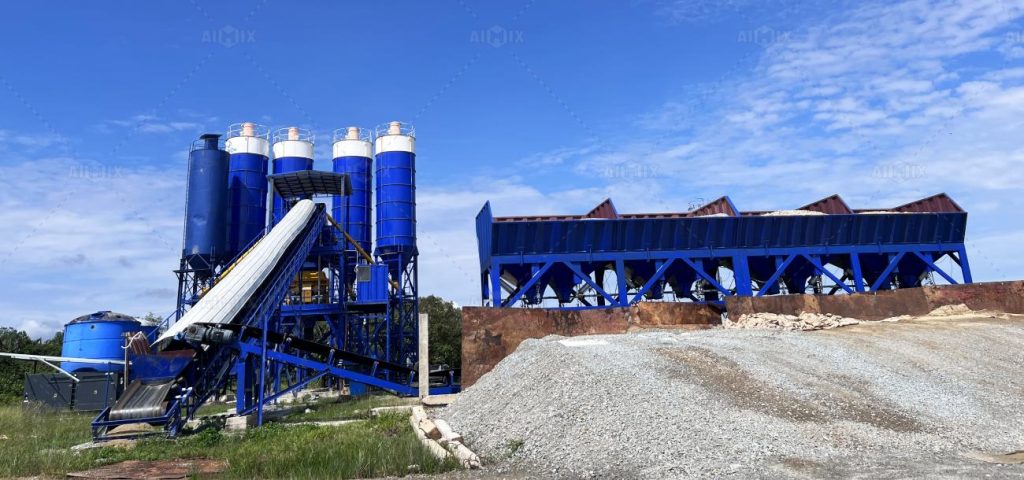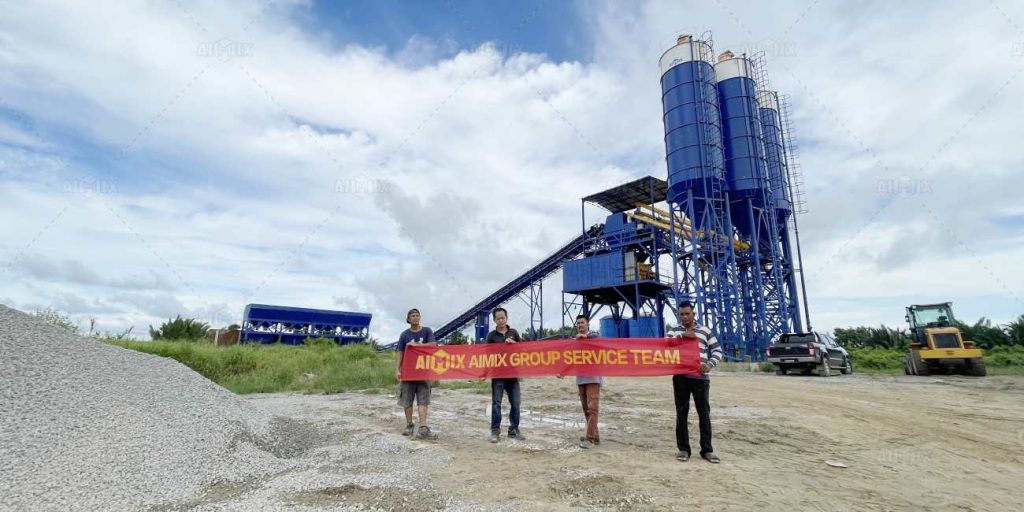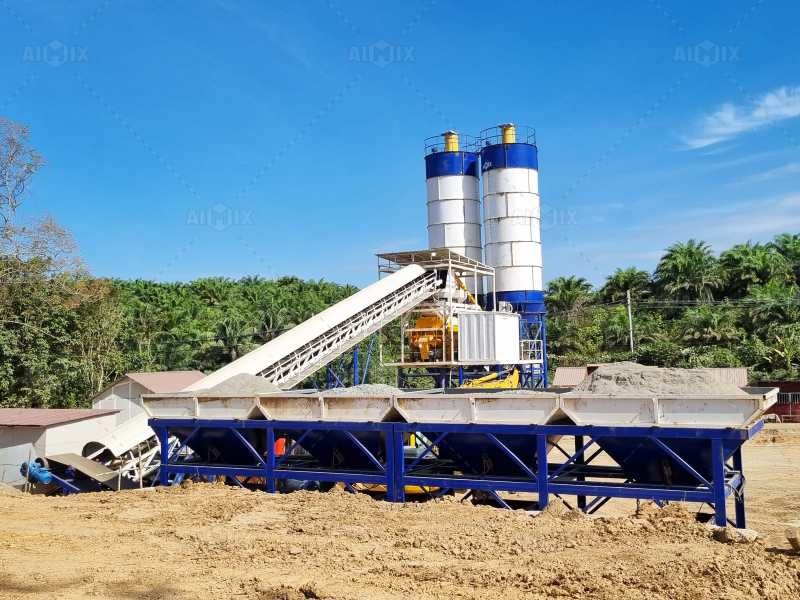In the rapidly evolving construction industry, automation has become a transformative force across various stages of the building process. Among the areas most impacted is the ready-mix concrete sector, where automated systems are revolutionizing plant performance and cost structure. For contractors and investors considering a new concrete mixer plant or browsing concrete mixing plant for sale listings, understanding how automation affects pricing and efficiency is crucial.
This article explores how automation is reshaping the ready mix concrete plant industry, particularly how it influences ready mix concrete plant price, RMC plant setup cost, and operational performance.

The Role of Automation in RMC Plants
An RMC (Ready Mix Concrete) plant is designed to manufacture concrete in a centralized location and deliver it to construction sites in a ready-to-use state. The core of this process involves batching, mixing, quality control, and logistics—areas where automation significantly enhances precision and efficiency.
Automated concrete mixing plants are equipped with control systems that handle:
Batching accuracy
Moisture correction
Material loading
Mixing timing and consistency
Real-time monitoring and reporting
These features help ensure consistent concrete quality while minimizing human error and material wastage.
How Automation Affects Ready Mix Concrete Plant Price
The ready mix concrete plant price varies depending on the degree of automation, plant capacity, and configuration. Fully automated plants typically have a higher upfront cost compared to semi-automatic or manual systems. However, they deliver substantial long-term savings and performance advantages.
1. Initial Investment vs. Operational Savings
A fully automated concrete mixer plant may require a higher rmc plant setup cost, especially with PLC controls, sensors, and digital interfaces. However, this is offset by:
Reduced labor costs
Faster production cycles
Lower maintenance frequency due to system alerts and predictive diagnostics
Improved batch consistency, reducing rework and material overuse
Over time, the operational savings make automation a financially sound investment.
2. Scalability and Upgrades
Modern concrete mixing plants for sale often come with modular designs, allowing for upgrades from semi-automatic to fully automated systems. This scalability allows plant owners to start small and expand as demand grows, optimizing the ready mix concrete plant price based on their budget and long-term goals.

Impact on Performance and Efficiency
Automation doesn’t just influence price—it revolutionizes plant performance.
1. Enhanced Batching Accuracy
Automated batching systems weigh and mix materials precisely according to recipe specifications. This ensures consistent concrete quality and complies with national and international standards, especially critical in commercial and infrastructure projects.
2. Real-Time Data and Remote Management
Automated systems allow plant managers to monitor operations remotely via mobile apps or control dashboards. They can track production volumes, equipment status, raw material levels, and maintenance needs. This not only boosts efficiency but also enhances planning and inventory control.
3. Faster Production Cycles
Automated plants operate with minimal downtime. Batching, mixing, and material handling are synchronized seamlessly, enabling faster turnaround times. This is especially useful for high-demand urban projects or tight-schedule infrastructure developments.
Reduction in RMC Plant Setup Cost Through Smart Design
While automation increases the upfront cost, it can reduce the RMC plant setup cost in several ways:
Optimized Land Use: Automated plants can be compact and highly efficient in layout, reducing the required area.
Energy Savings: Modern automated plants are designed to be energy efficient, reducing electrical and fuel costs during operation.
Minimal Waste: With precise material measurement, there is less waste of cement, water, and aggregates—lowering both costs and environmental impact.
For new entrants or small contractors, this makes automated small and medium concrete mixer plants a viable and cost-efficient entry point into the ready-mix industry.

Technology-Driven Demand for Concrete Mixing Plant for Sale
As construction standards evolve and demand for quality concrete increases, the market is witnessing a spike in demand for high-performance concrete mixing plants for sale. Buyers are increasingly prioritizing:
Automation levels
Energy efficiency
Production capacity
Maintenance requirements
In response, manufacturers are offering advanced plants with pre-installed automation features, remote support, and user-friendly interfaces, all at competitive prices. This is reshaping how investors evaluate ready mix concrete plant price not just by its size, but by the value-added features it includes.
Conclusion: Smart Spending for Long-Term Gains
Automation is no longer a luxury—it’s becoming the industry standard for concrete production. While it may raise the rmc plant setup cost initially, its impact on long-term savings, operational reliability, and concrete quality is profound. As more manufacturers release tech-equipped concrete mixing plant for sale, the market is shifting toward smarter, more efficient systems.
Contractors and construction businesses that adopt automation in their concrete mixer plant operations gain a competitive edge in terms of both performance and cost-efficiency. The bottom line? Investing in automation today is investing in a more productive, sustainable, and profitable tomorrow.